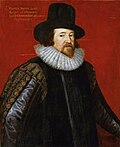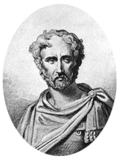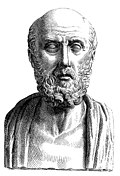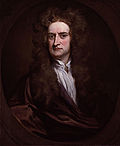Portal:History of science
The History of Science Portal
The history of science covers the development of science from ancient times to the present. It encompasses all three major branches of science: natural, social, and formal. Protoscience, early sciences, and natural philosophies such as alchemy and astrology that existed during the Bronze Age, Iron Age, classical antiquity and the Middle Ages, declined during the early modern period after the establishment of formal disciplines of science in the Age of Enlightenment.
Science's earliest roots can be traced to Ancient Egypt and Mesopotamia around 3000 to 1200 BCE. These civilizations' contributions to mathematics, astronomy, and medicine influenced later Greek natural philosophy of classical antiquity, wherein formal attempts were made to provide explanations of events in the physical world based on natural causes. After the fall of the Western Roman Empire, knowledge of Greek conceptions of the world deteriorated in Latin-speaking Western Europe during the early centuries (400 to 1000 CE) of the Middle Ages, but continued to thrive in the Greek-speaking Byzantine Empire. Aided by translations of Greek texts, the Hellenistic worldview was preserved and absorbed into the Arabic-speaking Muslim world during the Islamic Golden Age. The recovery and assimilation of Greek works and Islamic inquiries into Western Europe from the 10th to 13th century revived the learning of natural philosophy in the West. Traditions of early science were also developed in ancient India and separately in ancient China, the Chinese model having influenced Vietnam, Korea and Japan before Western exploration. Among the Pre-Columbian peoples of Mesoamerica, the Zapotec civilization established their first known traditions of astronomy and mathematics for producing calendars, followed by other civilizations such as the Maya.
Natural philosophy was transformed during the Scientific Revolution in 16th- to 17th-century Europe, as new ideas and discoveries departed from previous Greek conceptions and traditions. The New Science that emerged was more mechanistic in its worldview, more integrated with mathematics, and more reliable and open as its knowledge was based on a newly defined scientific method. More "revolutions" in subsequent centuries soon followed. The chemical revolution of the 18th century, for instance, introduced new quantitative methods and measurements for chemistry. In the 19th century, new perspectives regarding the conservation of energy, age of Earth, and evolution came into focus. And in the 20th century, new discoveries in genetics and physics laid the foundations for new sub disciplines such as molecular biology and particle physics. Moreover, industrial and military concerns as well as the increasing complexity of new research endeavors ushered in the era of "big science," particularly after World War II. (Full article...)
Selected article -
A paradigm shift is a fundamental change in the basic concepts and experimental practices of a. It is a concept in the philosophy of science that was introduced and brought into the common lexicon by the American physicist and philosopher Thomas Kuhn. Even though Kuhn restricted the use of the term to the natural sciences, the concept of a paradigm shift has also been used in numerous non-scientific contexts to describe a profound change in a fundamental model or perception of events.
Kuhn presented his notion of a paradigm shift in his influential book The Structure of Scientific Revolutions (1962). (Full article...)
Selected image
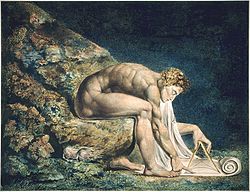
Poet and artist William Blake criticized Newton and like-minded philosophers such as Locke and Bacon for relying solely on reason.
Blake's 1795 print Newton is a demonstration of his opposition to the "single-vision" of scientific materialism: the great philosopher-scientist is shown utterly isolated in the depths of the ocean, his eyes (only one of which is visible) fixed on the compasses with which he draws on a scroll. His concentration is so fierce that he seems almost to become part of the rocks upon which he sits.
Did you know
...that Einstein's famous letter to FDR about the possibility of an atomic bomb was actually written by Leó Szilárd?
...that geology was transformed in the latter part of the 20th century after widespread acceptance of plate tectonics?
...that the idea of biological evolution dates to the ancient world?
Selected Biography -
Arthur Holly Compton (September 10, 1892 – March 15, 1962) was an American physicist who won the 1927 Nobel Prize in Physics for his discovery of the Compton effect, which demonstrated the particle nature of electromagnetic radiation. It was a sensational discovery at the time: the wave nature of light had been well-demonstrated, but the idea that light had both wave and particle properties was not easily accepted. He is also known for his leadership over the Metallurgical Laboratory at the University of Chicago during the Manhattan Project, and served as chancellor of Washington University in St. Louis from 1945 to 1953.
In 1919, Compton was awarded one of the first two National Research Council Fellowships that allowed students to study abroad. He chose to go to the University of Cambridge's Cavendish Laboratory in England, where he studied the scattering and absorption of gamma rays. Further research along these lines led to the discovery of the Compton effect. He used X-rays to investigate ferromagnetism, concluding that it was a result of the alignment of electron spins, and studied cosmic rays, discovering that they were made principally of positively charged particles. (Full article...)
Selected anniversaries
- 1774 - Birth of Christian Leopold von Buch, German geologist (d. 1853)
- 1785 - Birth of John James Audubon, French-American naturalist and illustrator (d. 1851)
- 1879 - Birth of Owen Willans Richardson, British physicist, Nobel Prize laureate (d. 1959)
- 1900 - Birth of Charles Richter, American geophysicist (d. 1985)
- 1920 - Death of Srinivasa Ramanujan, Indian mathematician (b. 1887)
- 1932 - Birth of Michael Smith, English-born chemist, Nobel laureate (d. 2000)
- 1933 - Birth of Arno Allan Penzias, German-born physicist, Nobel laureate
- 1940 - Death of Carl Bosch, German chemist, Nobel laureate (b. 1874)
- 1951 - Death of Arnold Sommerfeld, German physicist (b. 1868)
- 1986 - In Ukraine, a nuclear reactor accident occurs at the Chernobyl Nuclear Power Plant, creating the world's worst nuclear disaster
- 1994 - Physicists announce first evidence of the top quark subatomic particle
Related portals
Topics
General images
Subcategories
Things you can do
Help out by participating in the History of Science Wikiproject (which also coordinates the histories of medicine, technology and philosophy of science) or join the discussion.
Associated Wikimedia
The following Wikimedia Foundation sister projects provide more on this subject:
-
Commons
Free media repository -
Wikibooks
Free textbooks and manuals -
Wikidata
Free knowledge base -
Wikinews
Free-content news -
Wikiquote
Collection of quotations -
Wikisource
Free-content library -
Wikiversity
Free learning tools -
Wiktionary
Dictionary and thesaurus










